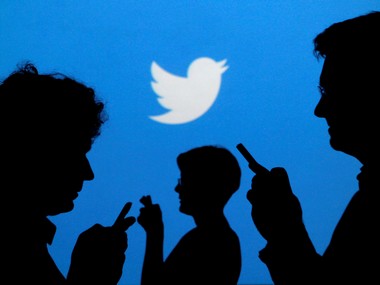Micro-blogging site Twitter has come under intense criticism for allegedly condoning caste discrimination and caste hierarchy. Anti-caste activists and academicians accused Twitter for imposing restrictions on accounts of those belonging to the marginalised groups of the society. Twitter was also accused of not verifying accounts (by assigning blue ticks) to users who are public figures and belong to the minority communities. Hashtags like #JaiBhimJaiPeriyar, #TwitterHatesSCSTOBCMuslims, #cancelallBlueTicksinIndia, #JaiBhimJaiMandalJaiBirsa have been trending on the micro-blogging site all of last week, starting on Saturday when Twitter disabled and imposed restrictions on the account of Dilip Mandal, a professor at Makhanlal Chaturvedi National University of Journalism and Communication. Several activists called out Twitter for its biased and selective suppression of a few voices based on their caste. The outcry turned into a campaign against Twitter with the hashtag #JaiBhimJaiPeriyar by Dalit, Tribal activists and their supporters. The hashtag is one of the highest trends on Twitter over 65,000 tweets. The hashtag celebrates the two pro-Dalit figures — BR Ambedkar and Periyar or Erode Venkatappa Ramasamy. Periyar started the national movement #JaiBhimJaiPeriyar marks the coalition of Jai Bhim, a popular Dalit slogan used as a reference to hail Bhim Rao Ambedkar and Periyar Erode Venkatappa Ramasamy.
Two architect of egalitarian,progressive,equal, and modern India who are deliberately kept on sidelines by manuwadis. It no longer can continue.#JaibhimJaiPeriyar. https://t.co/eTP4icChHs
— Laxman (@and_fair) November 7, 2019
Earlier on Wednesday, #cancelallBlueTicksinIndia was among the top trends and on Tuesday it was #TwitterHatesSCSTOBCMuslims. On Monday, #JaiBhimJaiMandalJaiBirsa. But even before these hashtags took over Twitter, other trends like #CastiestTwitter, #JaiBhimTwitter, #BrahmanicalTwitter and #SackManishMaheshwari (the managing director of Twitter India) has been circulating on the site since Saturday. “Include everyone, or remove everyone,” Mandal had tweeted on Wednesday, which formed the basis of the hashtag #cancelallBlueTicksinIndia. Users also criticised the manner in which the “blue ticks” are assigned by the micro-bloggging site. Considered as a verification badge, the blue tick is supposed to help denote an individual’s account to have a higher value than those without it.
सबको दो, या सबका हटाओ. ये तो बताओ कि इसका नियम क्या है. लोकतंत्र में संवाद का मामला है. निजी खेती नहीं है. आपके बाप का राज भी नहीं है. समझे या नहीं समझे? #cancelallBlueTicksinIndia
— Dilip Mandal (@Profdilipmandal) November 6, 2019
Impact Shorts
More ShortsTwitter needs to be more democratic and transparent in verifying handles. There must be an universal policy or else #cancelallBlueTicksinIndia and let everyone be on same page.
— Sanjay Yadav (@sanjuydv) November 6, 2019
When and how did the protests begin? The online protests began after Twitter decided to abruptly disable the account of Mandal, who is also a consulting editor at a news website. According to Quint, Mandal said he had tweeted about a booklet in March including the author’s contact details. Twitter suspended his account due to “violation of privacy”. However, Mandal claimed that the author had given him the permission to tweet his contacts. Mandal’s account was not only restored, but Twitter also gave him the “blue tick”, making it a verified account. Mandal’s Twitter bio, however, reads, “Against Blue Tick Hierarchy”.
He further alleged that Twitter follows a system of bias, where some voices are silenced and some promoted, creating a hierarchy in conversation. “We don’t know what process Twitter follows for verifying people since it is not very transparent. But it creates a hierarchy in the conversation,” Mandal told Quint. Twitter responds to accusations In a statement to IANS on Tuesday, a Twitter spokesperson denied allegations and spoke about ‘One set of Twitter Rules’. “To make it clear, we have one set of Twitter Rules and we enforce our policies judiciously and impartially for all individuals – regardless of their political beliefs, religious ideology, professional position or background,” the spokesperson said. “We have ongoing efforts to provide local market context when developing and enforcing our global policies. We extensively cover gender and religion (including caste) in our trainings, to provide reviewers with the local context they need to evaluate content. Our Hateful Conduct Policy prohibits behaviour that targets individuals based on protected categories (including caste),” the spokesperson added. Twitter has been accused of casteism in the past too Last year, Twitter was accused of insensitivity towards the victims of caste discrimination when its CEO Jack Dorsey was seen holding a poster saying ‘Smash Brahmanical Patriarchy’ in a picture. The CEO apologised when the site’s pro-Hindutva (and caste Hindu) protested. A senior IPS officer also condemned the message and called it out for having the ‘potential to cause communal riots’.
Do you realise that this picture has potential of causing communal riots at a time when several States are going to Assembly Elections in India. Even now an apology is not offered. Actually its a fit case for registration of a criminal case for attempt to destablise the nation.
— Dr. Sandeep Mittal, IPS (@smittal_ips) November 20, 2018
Tomorrow if @jack is given a poster with anti Semitic messages in a meeting will his team allow him to hold it up? Why is that any different? Inciting hate against any community is wrong @Twitter @TwitterIndia https://t.co/TeBnOGYNIT
— Mohandas Pai (@TVMohandasPai) November 19, 2018


)

)
)
)
)
)
)
)
)



